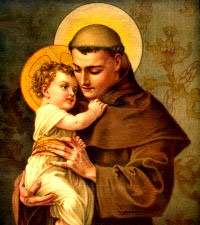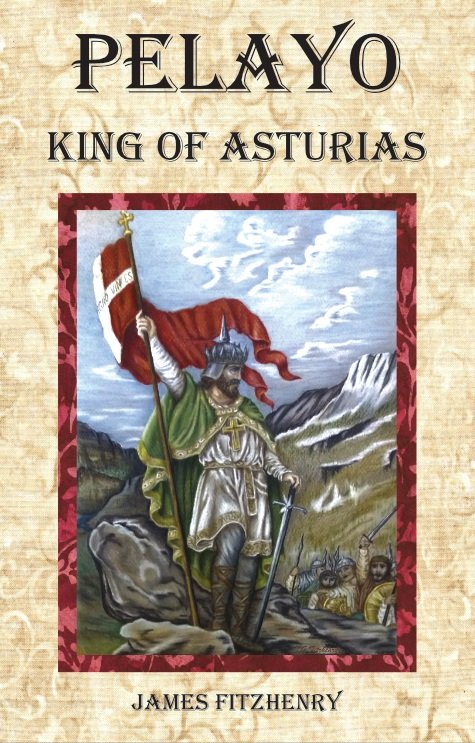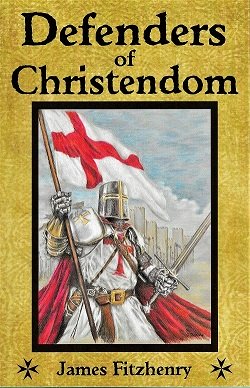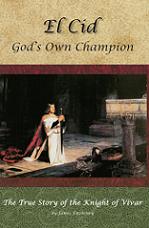Saint Anthony of Padua

Saint Anthony of Padua
Feast Day – June 13
Saint Anthony of Padua was born in the year 1195 at Lisbon, the capital of Portugal, where his father was a captain in the royal army. Already at the age of fifteen years the youth had entered the Congregation of Canons Regular of St Augustine, and was devoting himself with great earnestness to study and to the practice of piety in the monastery at Coimbra, when a significant event, which occurred in the year 1220, changed his entire career.
The relics of St Berard and Companions, the first martyrs of the Franciscan Order, were being brought from Africa to Coimbra. At the sight of them, Saint Anthony of Padua was seized with an intense desire to suffer martyrdom as a Franciscan missionary in Africa. In response to his repeated and humble petitions, the permission of his superiors to transfer to the Franciscan Order was reluctantly given. At his departure, one of the canons said to him ironically, "Go, then, perhaps you will become a saint in the new order." Saint Anthony of Padua replied, "Brother, when you hear that I have become a saint, you will praise God for it."
In the quiet little Franciscan convent at Coimbra Saint Anthony of Padua received a friendly reception. In the very same year his earnest wish to be sent to the missions in Africa seemed to be fulfilled, but God had actually decreed otherwise. Anthony had scarcely set foot on African soil when he was seized with a grievous illness. Even after recovering from it, he was so weak that, resigning himself to the will of God, he boarded a boat back to Portugal. But a storm drove the ship to the coast of Sicily, and Anthony went to Assisi, where the general chapter of the order was held in May, 1221.
As Saint Anthony of Padua still looked weak and sickly, and gave no evidence of his scholarship, no one paid any attention to the stranger until Father Gratian, provincial of Romagna, had compassion on him and sent him to the quiet little convent near Forli. There Anthony remained nine months occupied in the lowliest duties of the kitchen and convent, and practiced to his heart's content interior as well as exterior mortification.
The hidden jewel was soon to appear in all its brilliance. Saint Anthony was sent to Forli with some other brethren, to attend the ceremony of ordination. At the convent there the superior wanted somebody to give an address for the occasion. Everybody excused himself, saying that he was not prepared, until Anthony was finally asked to give it. When he, too, excused himself most humbly, his superior ordered him by virtue of the vow of obedience to give the sermon. Anthony began to speak in a very reserved manner; but soon holy animation seized him, and he spoke with such eloquence, learning, and unction that everybody was fairly amazed.
When St Francis was informed of the event, he gave Saint Anthony of Padua the mission to preach all over Italy. At the request of the brethren, Anthony was later commissioned also to teach theology, "but in such a manner, St Francis distinctly wrote, "that the spirit of prayer be not extinguished either in yourself or in the other brethren."
Saint Anthony of Padua himself placed greater value on the salvation of souls than on learning. For that reason he never ceased to exercise his office as preacher along with the work of teaching. The concourse of hearers was sometimes so great that no church was large enough to accommodate the audiences and he had to preach in the open air. He wrought veritable miracles of conversion. Deadly enemies were reconciled with each other. Thieves and apologized, usurers made restitution of their ill gotten goods. He was so energetic in defending the truths of the Catholic Faith that many heretics re-entered the pale of the Church, so that Pope Gregory IX called him "the ark of the covenant."
St Anthony preached in Italy speaking perfect Italian, and would speak in France using flawless French. The saint never learned these languages, but was given the gift of tongues. When he spoke to crowds of Greeks, where there were also Latins, French and Englishmen, all could hear him in their own language. His words were always clearly understood, and could be heard at remarkable distances.
Once he was preaching at Rimini on the seacoast. Saint Anthony of Padua noticed that a group of heretics turned their backs to him and started to leave. Promptly the preacher turned to the sea and called out to the fishes: "Since the heretics do not wish to listen to me, do you come and listen to me!" And marvelous to say, shoals of fish came swimming and thrust their heads out of the water as if to hear the preacher. At this the heretics fell at Anthony's feet and begged to be instructed in the truth.
The blessings of St Anthony's preaching were not confined to Italy. St Francis sent him to France, where for about three years (1225-1227) he labored with blessed results in the convents of his order as well as in the pulpit. In all his labors he never forgot the admonition of his spiritual Father, that the spirit of prayer must not be extinguished. If he spent the day in teaching, and heard the confessions of sinners till late in the evening, then many hours of the night were spent in intimate union with God.
Once a man, at whose home Anthony was spending the night, came upon the saint and found him holding in his arms a child of unspeakable beauty surrounded with heavenly light. It was the Child Jesus.
In 1227, Anthony was elected minister provincial of upper Italy; and then he resumed the work of preaching.
There were many remarkable incidents that occurred during the life of Saint Anthony. One such incident involved Saint Anthony’s father, who was wrongly accused of murdering a nobleman. Saint Anthony was made aware of his father’s imprisonment through supernatural means, and began the journey to assist his father after the trial had already begun.
Saint Anthony of Padua prayed that he might arrive before the trial had concluded, when in an instant he suddenly he found himself in Lisbon, hundreds of miles away. He entered the courtroom to the amazement of the judges, and asked to speak in defense of his father.
Saint Anthony told the judges that the murdered man would himself declare his father’s innocence, and led them all to his burial site. The murdered man’s remains were dug up and uncovered. Saint Anthony then ordered the man to speak in the name of God when he sat up and announced that Saint Anthony’s father was guiltless. He then asked Saint Anthony to give him absolution before returning to his former position.
Out of the abundance of his love he worked his wonders. Like a good husbandman, he went to and fro sowing peace in the field of dissension. At his approach, bringing with him as he did an atmosphere that penetrated the hardest heart and softened it, he attuned longstanding discords; he harmonized the inharmonious home circle.
To the wife fleeing from the wrath of an enraged and unreasonable husband, he said: "Return to your own home in peace." And when she had come to her own house, a kindly welcome awaited her. To the infant whose lips had not yet framed a syllable, and whose father had unjustly accused his wife of infidelity, Anthony said: "My child, I adjure thee, in the name of the Infant God of the Manger, to declare publicly, in clear and positive terms, to whom thou owest thy existence." The child, in the arms of its mother, turned toward the accuser and pronounced distinctly these three words: "Behold my father!" Then, Anthony, taking the babe and placing it in the arms of the husband, said: "Love this child for it is indeed your own. Love also your wife, who has been proved to be faithful, devoted, and worthy of your affection."
What a sermon, in a few words, on true and false love, he preached at the funeral of the Florentine notable! Anthony's text was: "Where thy treasure is there thy heart is also." Pausing suddenly, he beheld in a vision the soul of that rich man in torment. He exclaimed: "This rich man is dead and his soul is in torture! Go open his coffers and you will find his heart." The astonished relatives and friends hastened to do his bidding; and there, half buried among the gold pieces, they found the still palpitating heart of the dead Croesus.
Due to his taxing labors and his austere practice of penance, he soon felt his strength so spent that he prepared himself for death. After receiving the last sacraments he kept looking upward with a smile on his countenance. When he was asked what he saw there, he answered, "I see my Lord." Then he breathed forth his soul on June 13, 1231, being only 36 years old. Soon the children in the streets of the city of Padua were crying, "The saint is dead. Anthony is dead."
Pope Gregory IX enrolled him among the saints in the very next year. At Padua a magnificent basilica was built in his honor, his holy relics were entombed there in 1263. From the time of his death up to the present day, countless miracles have occurred through St. Anthony's intercession, so that he is known as the Wonder-Worker. In 1946 he was also declared a Doctor of the Church.
*from: The Franciscan Book of Saints, ed. by Marion Habig, OFM
Return to Franciscan Calendar Page
Return to Saints Page
Return to Roman Catholic Saints Homepage
NOW AVAILABLE!!
Pelayo's resistance initiated the nearly 800-year-long Reconquista to take back his country from the ruthless invader who had conquered his homeland and sought to erase his culture and his faith. His actions would lay the foundations of a Kingdom for Christ that would eventually reach around the world and spread the Catholic faith to millions of souls. Read more...
Please help us continue to bring high quality books to our readers at the lowest possible price! Click the link below! Thank you!
Now Available!
Defenders of Christendom
Battles - Honor - Miracles!
This book is filled with
amazing stories of little-known
Catholic heroes presenting
spectacles of bravery and
valor never exceeded in all the annals of history.
Demonstrating his
gallantry through daring feats
of arms, the knight's faith,
coupled with his marvelous
courage, made him nearly
invincible on the field
of battle.
read more . . .
Learning to Love God
Especially for young children -
Now available as an e-book!
Available for only $2.99 US
as an ebook download.
Also available in Spanish!
The exciting life story of
the holy Catholic knight
known as El Cid!
The amazing life story of the
little known incorrupt saint
- King Fernando III!
This highly acclaimed book is
inspirational to young men
and a guide to building a strong
masculine, Catholic character!
Also available as softback!








